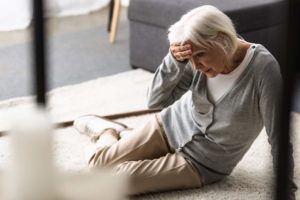
According to research, falls are the leading cause of fatal and non-fatal injuries for seniors above 65. It can result in injuries such as hip fractures, concussions, and broken bones. If you have a senior member of your family or you work at a retirement home, you should take steps to ensure that falls and trips are minimized. Here are some of the best practices you can implement to prevent accidents at home and keep the senior members of your community safe from fall accidents.
1. Clear clutter
As we grow older and our muscles shrink, our sense of balance deteriorates. For this reason, you should keep hallways, corridors, and paths clear of any clutter in case you are housing a senior person. Clutter such as phone cords, banana peelings, pet bowls, and electric wires are some of the common causes of trips and falls at home.
2. Keep floors dry
Apart from clearing clutter, you should always ensure that floors are dry and any spills are wiped immediately. Slip, trip, and fall accidents are the most common accidents in senior living facilities and are mostly caused by clutter or slippery floors. If your elderly parent had a fall accident that you believe resulted from a senior living facility’s negligence, be sure to consult a personal injury attorney like levarlaw.com to help you get compensation.
3. Improve the lighting systems
Seniors struggle with weaker vision, and their residences should be well lit to provide safety when moving around. Light switches should be easy to reach.
4. Exercise regularly
Exercises are ideal for keeping body muscles healthy and balanced. Seniors should engage in activities such as swimming, walking, jogging, and dancing.
5. Use assistive devices
At some stage in their life, elders will lose their ability to support their body weight, and at this stage, you should provide them with support structures such as a walking stick. Pathway points such as staircases should have supportive rails, while bathrooms should have grab bars.
6. Regular checkups
Seniors should have regular medical checkups to ascertain the condition of their eyesight and hearing. The auditory system controls balance and coordination on the brain, and an infection can significantly influence the elder’s ability to keep their body balance. Poor eyesight also contributes to poor judgment when moving about, which can result in falls. In case an elderly person under your care is experiencing visual impairment related signs, you should consult an optician immediately.
7. Be aware of the effects of medication
Most seniors are under medical prescriptions that boost their wellbeing. Sometimes, the medicine can have adverse side effects such as drowsiness and dizziness, resulting in loss of balance. It is advisable to consult with a doctor in case of such effects set in.
8. Proper footwear
A senior’s footwear should have a solid gripping sole and fit firmly and comfortably. You should encourage seniors to avoid wearing high heels, flip flops, slippers, or shoes without back support.
Endnote
Seniors are susceptible to fall and slip related accidents due to their old age. However, these accidents can be avoided by keeping their environment safe and free of risk factors.